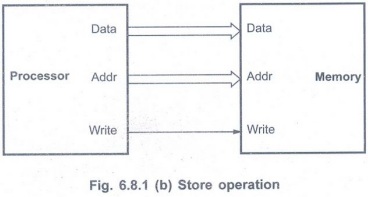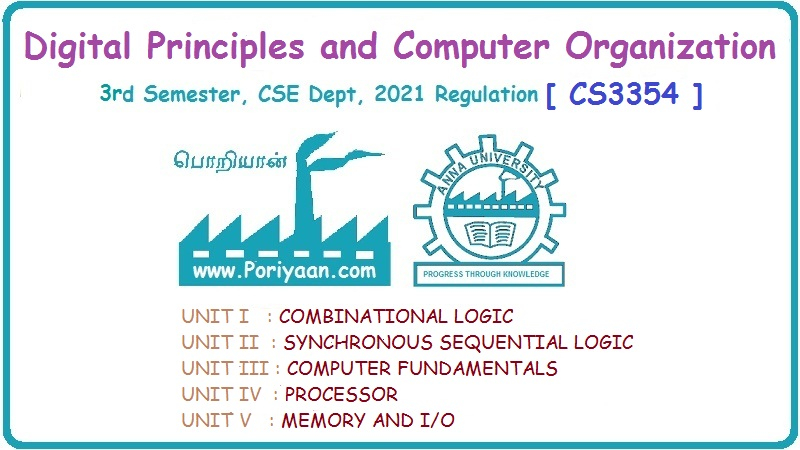Digital Principles and Computer Organization: Unit III: Computer Fundamentals
Memory Operations
Computer Fundamentals - Digital Principles and Computer Organization
We know that both program instructions and data operands are stored in the memory. To execute an instruction processor has to fetch instruction and read the operand or operands if necessary from the memory.
Memory Operations
• We know that both program instructions
and data operands are stored in the memory. To execute an instruction processor
has to fetch instruction and read the operand or operands if necessary from the
memory. After execution of instruction processor may store the result or
modified operand back in the memory. Thus, there are two basic operations
required in the memory access: 1. Load (Read or fetch) 2. Store (write).
• Load operation:
In the load operation the contents of the specified memory location are read by
the processor. For load operation processor sends the address of the memory
location whose contents are to be read and generates the appropriate read
signal to indicate that it is a read operation. The memory identifies the
addressed memory location and sends the contents of that memory location to the
processor. This operation is illustrated in Fig. 6.8.1 (a).

• Store operation: In the store
operation the data from the processor is stored in the specified memory
location. For store operation processor sends the address of the memory location
where the data is to be written on the address lines, the data
to be written on the data lines and
generates the appropriate write signal to indicate the store operation. The
memory identifies the addressed memory location and writes the data sent by the
processor at that location destroying the former contents of that location.
This operation is illustrated in Fig. 6.8.1 (b).

• The data items or instructions which
are transferred between memory and processor may be either byte or word. They
can be transferred using a single operation. Mainly this transfer takes place
between processor registers and the memory locations.
• We know that processor has small number
of built-in registers. Each register is capable of holding a word data. These
registers are either the source or the destination of a transfer to or from the
memory.
Review Question
1. Explain the data transfer operations
between memory and the processor.
Digital Principles and Computer Organization: Unit III: Computer Fundamentals : Tag: : Computer Fundamentals - Digital Principles and Computer Organization - Memory Operations
Related Topics
Related Subjects
Digital Principles and Computer Organization
CS3351 3rd Semester CSE Dept | 2021 Regulation | 3rd Semester CSE Dept 2021 Regulation
